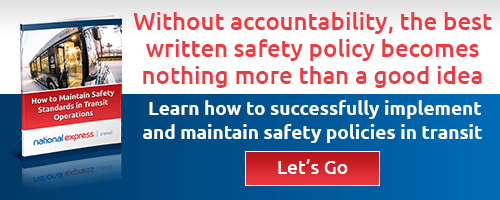Why Transportation Services for the Elderly and Disabled are a Civic Right

What would be an easy and straightforward task for many people, such as going to a doctor’s visit or to pick up groceries, can be a huge ordeal for the elderly and disabled members of our population. Without a car of their own, and the ability and resources to drive it, getting from one location to another within a city without hiring a driver will most likely require public transportation. However, a regular city bus may not work for some disabled or elderly, due to first-mile and last-mile transport issues with getting to or from a stop, or scheduling limitations, or other factors, in which case paratransit services can step in to fill that important need.
Paratransit services, otherwise known as dial-a-ride services, are often overlooked by many of the young and able-bodied, but this transportation option can be an essential lifeline for those whose freedom of movement is limited by infirmity or age. Although some may view paratransit services to be an ‘extra’ or a luxury for municipalities, and one that is used by relatively few when compared to regular public transportation, it can be argued that access to this option is a civic right and an essential component of the Americans with Disabilities Act (ADA).
According to the ADA website,
“Public transportation authorities may not discriminate against people with disabilities in the provision of their services. They must comply with requirements for accessibility in newly purchased vehicles, make good faith efforts to purchase or lease accessible used buses, remanufacture buses in an accessible manner, and, unless it would result in an undue burden, provide paratransit where they operate fixed-route bus or rail systems. Paratransit is a service where individuals who are unable to use the regular transit system independently (because of a physical or mental impairment) are picked up and dropped off at their destinations.”
With an effective paratransit service, the elderly and the disabled can get on-demand door-to-door transportation in and around cities, which helps these community members regain some of their independence, as well as their dignity. A well-run paratransit service will offer an extensive suite of solutions to make sure its scheduling and dispatching systems are adequate to meet the needs of its customers, and will have well-trained personnel to handle call center, dispatching, and driving and maintenance tasks.
By contracting with a paratransit service, which will then manage and optimize the productivity and performance of the routes, it allows the transit authority to keep its focus on regular public transport issues, while the paratransit service solves the first-mile and last-mile concerns for the elderly and disabled. Contracting with a paratransit service, rather than operating one in-house, can also be a way for transit agencies to cut some costs while providing the required services, depending on the particular situation.
![]()

